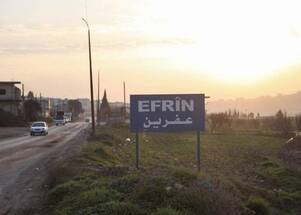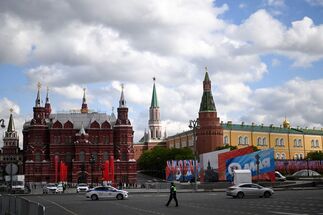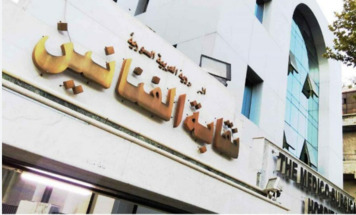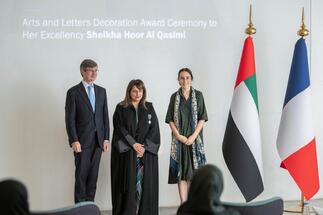-
Plastic left by campers in UAE’s deserts is killing camels: Vet researcher
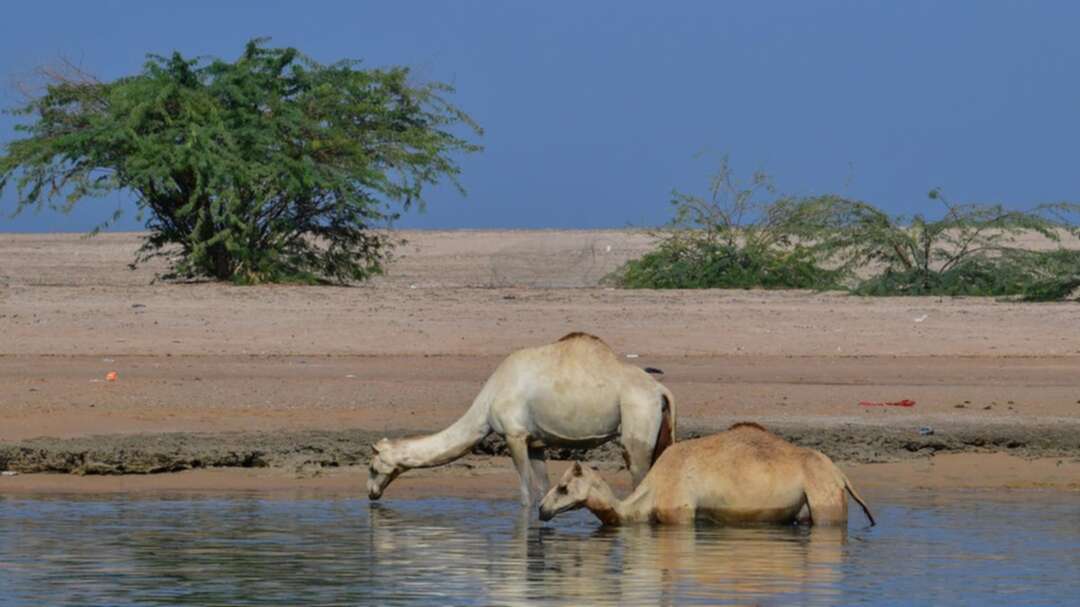
Campers and picnickers escaping the city and heading into the desert are leaving behind plastic pollution, which is killing scores of camels in deserts across the United Arab Emirates, according to a leading veterinary researcher.
Dr Ulrich Wernery, a veterinary microbiologist in Dubai and head of the emirate’s Central Veterinary Research Laboratory, said many camels have died due to the ingestion of plastic that has amassed over time in their digestive tracts.
“There is a number of animal fatalities - not only in camels, but also turtles, gazelles and in sheep - caused by plastic ingestion,” Dr Wernery told Al Arabia English. “It is far from good.”
“Since the COVID-19 pandemic there is even more trash discarded in the desert, in our experience, as more people try to avoid the city - especially at weekend - and go in the desert for caping or bbq-ing and you see places that I cannot describe.
“It is so bad.”
While campers and picnickers leave trash in the desert, due to high winds and the open environment, plastic bags and other plastic pollution can also blow into the desert from landfills.
As the dromedaries roam the desert, they munch on plastic bags, other trash, and plastic pollution that has drifted into sand dunes or into trees.
 Dr Ulrich Wernery, a veterinary microbiologist in Dubai and head of the emirate’s Central Veterinary Research Laboratory, said many camels have died due to the ingestion of plastic that has amassed over time in their digestive tracts.(Stock photo)
Dr Ulrich Wernery, a veterinary microbiologist in Dubai and head of the emirate’s Central Veterinary Research Laboratory, said many camels have died due to the ingestion of plastic that has amassed over time in their digestive tracts.(Stock photo)Single use plastics, such as plastic bags, often wind up in camel stomachs, which kills the dromedaries slowly by blocking their intestines, tearing at organs, and creating bacterial infections.
Absorbing plastic can also lead to ulcers which causes tremendous discomfort for the desert animal. Also, since they are forced to feel constantly full, they end up not eating enough food and this can cause intestinal bleeding, blockages, dehydration, malnutrition and death, said the veterinary specialist.
Dr Wernery led a research team into the cause of camel deaths in the region for a study, ‘The plight of camels eating plastic waste,’ which was published in the Journal of Arid Environments earlier this year.
Since 2008, Wernery’s team has examined 3,000 dead camels. Of these, one per cent – or 300 camels - had guts packed with plastic.
These camels had a ‘polybezoar’ type of ingestion – a term used to define a tightly packed collection of indigestible materials such as plastics that is strapped in the stomach or digestive tract, causing a large stone-like mass.
During their studies, the team found a camel which had upwards of 200 plastic bags packed into its stomach.
Plastic, warns Dr Wernery, is a not a problem limited to the ocean.
Banning plastic bags and other single-use plastics is essential for preserving the specials and other animals, he said.
“The UAE has to ban single use plastic bags as the first step. It is so important.”
source: Jennifer Bell
Image source: AFP
Levant
You May Also Like
Popular Posts
Caricature
BENEFIT Sponsors Gulf Uni...
- April 17, 2025
BENEFIT, the Kingdom’s innovator and leading company in Fintech and electronic financial transactions service, has announced its sponsorship of the “Innovation and Sustainable Technology Solutions Competition (GU - IST Solutions), hosted by Gulf University at its main campus.
This strategic sponsorship reflects BENEFIT’s active role in advancing technological innovation and fostering sustainable solutions to future challenges. It also seeks to empower Bahraini youth by enhancing their skills, capabilities, and competitiveness in innovation and solution development—contributing meaningfully to the broader goals of sustainable development across all sectors.
As part of BENEFIT’s active involvement in the competition, the company has announced that Hanan Abdulla Hasan, Senior Manager of Public Relations and Communication, will serve on the competition’s supervisory committee. Her upcoming participation reflects BENEFIT’s forward-looking commitment to championing academic and professional excellence.
Commenting on the occasion, Hanan Abdulla Hasan, Senior Manager of Public Relations and Communication at BENEFIT, said, “We are privileged to support this pioneering initiative, which aligns seamlessly with BENEFIT’s enduring commitment to fostering innovation and nurturing the potential of Bahrain’s youth. Our participation is rooted in a deep sense of social responsibility and a firm belief in the pivotal role of innovation in shaping a sustainable future. Through such platforms, we seek to empower the next generation with the knowledge, skills, and foresight required to develop impactful solutions that address future challenges, in line with the United Nations Sustainable Development Goals 2030.”
Dr. Aseel Al Ayash Dean of the College of Engineering in Gulf University commented, “We extend our sincere gratitude to BENEFIT for their generous sponsorship and support of the Innovation and Sustainable Technology Solutions Competition. This contribution plays an instrumental role in helping us achieve the strategic goals of this initiative, namely, cultivating a culture of innovation and sustainability, encouraging efforts that address the imperatives of sustainable development, and enhancing the practical and professional capabilities of our students and participants.”
The event will bring together a diverse spectrum of participants, including secondary school students, university undergraduates, engineers, industry professionals, entrepreneurs, academic researchers, and subject matter experts representing a wide range of disciplines.
The competition seeks to inspire participants to develop and present innovative, sustainable technologies aimed at addressing pressing environmental, social, and economic challenges. It encourages the formulation of business models that integrate advanced technological solutions with core principles of sustainability. Moreover, it serves as a platform for emerging leaders, entrepreneurs, and innovators to contribute to the advancement of the Sustainable Development Goals, promote the ethos of responsible technology, and demonstrate its transformative potential across various sectors.
Attendees will have the opportunity to view a series of project presentations submitted by participants, covering diverse areas such as eco-friendly product design, smart and sustainable innovations, renewable energy technologies, water conservation and management, waste minimisation and recycling, green architectural solutions, and sustainable transportation systems. Outstanding projects will be formally recognised and awarded at the conclusion of the event.
opinion
Report
ads
Newsletter
Subscribe to our mailing list to get the new updates!

